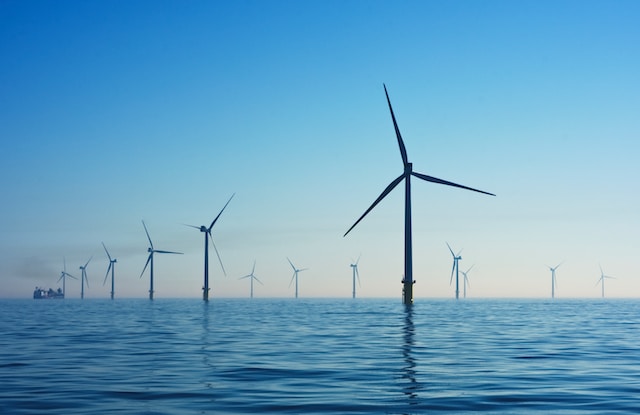How To Make Your Home More Energy Efficient

In an age when environmental sustainability and reducing energy consumption are more critical than ever, making your home more energy-efficient is not just a smart move but also a responsible one. Not only can you save money on your utility bills, but you can also contribute to a greener, more sustainable future for our planet. In this article, we’ll explore a variety of strategies and tips to help you make your home more energy-efficient.
Seal Air Leaks
One of the simplest and most effective ways to improve your home’s energy efficiency is by sealing air leaks. Gaps and cracks in your home’s exterior, windows, doors, and even ductwork can allow warm air to escape during the winter and cool air to seep out during the summer. This forces your heating and cooling systems to work harder, resulting in higher energy bills. To combat this, you can:
- Apply weatherstripping around doors and windows.
- Use caulk to seal gaps and cracks in walls and window frames.
- Insulate your attic and walls to prevent heat loss.
- Upgrade Insulation
Insulation is a critical component of your home’s energy efficiency. If your home is poorly insulated, a significant amount of energy is wasted. Consider the following insulation upgrades:
- Upgrade to energy-efficient insulation materials like spray foam, fiberglass, or cellulose.
- Ensure that your attic, walls, and basement are adequately insulated.
- Check and improve insulation around pipes and ducts, as these are common sources of energy loss.
- Install Energy-Efficient Windows
Old and drafty windows can contribute to heat loss in the winter and heat gain in the summer. Replacing them with energy-efficient windows can make a substantial difference in your home’s energy consumption. Look for windows with features like double glazing, low-E coatings, and gas fills to reduce heat transfer.
Opt for Energy-Efficient Appliances
Your choice of appliances has a significant impact on your home’s energy efficiency. When it’s time to upgrade, choose energy-efficient models that are ENERGY STAR certified. These appliances are designed to use less energy without sacrificing performance. This includes refrigerators, washing machines, dryers, dishwashers, and more. Investing in energy-efficient appliances not only reduces your energy bills but also decreases your carbon footprint.
Switch to LED Lighting
Traditional incandescent bulbs are energy hogs and have a short lifespan. In contrast, LED (Light Emitting Diode) bulbs are energy-efficient and can last up to 25 times longer. Switching to LED lighting can significantly reduce your electricity consumption and lower your lighting costs.
Programmable Thermostats
A programmable thermostat can help you manage your home’s temperature more efficiently. You can set it to lower the temperature when you’re not at home or while you’re asleep, and then raise it when you’re awake and active. This can result in substantial energy savings over time.
Regular HVAC Maintenance
Your heating, ventilation, and air conditioning (HVAC) system plays a significant role in your home’s energy consumption. To keep it running efficiently, schedule regular maintenance, including cleaning or replacing filters, checking for leaks, and ensuring that the system is working at its best. If your HVAC system is old and inefficient, consider upgrading to a more energy-efficient model.
Solar Panels
Solar panels are a long-term investment that can significantly reduce your reliance on traditional energy sources. By harnessing the power of the sun, you can generate clean, renewable energy and reduce your electricity bills. Many governments offer incentives and tax credits for installing solar panels, making them a more affordable option.
Water Heating Efficiency
Your water heater is another major energy consumer in your home. To make it more efficient, you can:
- Insulate your water heater to prevent heat loss.
- Set your water heater’s thermostat to a lower temperature, around 120°F (49°C).
- Fix any leaks in your hot water system promptly.
Consider upgrading to a tankless water heater, which heats water on-demand, reducing energy consumption.
Smart Home Technology
Integrating smart home technology can help you manage your energy use more efficiently. Smart thermostats, for example, allow you to control your HVAC system remotely and create personalized schedules. You can also invest in smart plugs and switches to turn off appliances and lights when not in use.
Landscaping for Energy Efficiency
Your outdoor landscaping can have a significant impact on your home’s energy consumption. Strategically planting trees and shrubs can provide natural shading in the summer, reducing the need for air conditioning, while also allowing more sunlight to enter in the winter. Additionally, consider adding trellises or awnings to block direct sunlight from hitting windows.
Energy Audits
If you’re unsure where to start with energy efficiency improvements, consider hiring a professional for a home energy audit. This audit will identify areas of energy waste and suggest the most cost-effective improvements for your specific situation.
Making your home more energy-efficient is a wise choice for both your finances and the environment. By implementing the strategies and tips mentioned in this article, you can reduce your energy bills, increase your home’s comfort, and make a positive impact on our planet. Remember, even small changes can lead to significant energy savings over time, so start making your home more energy-efficient today!
If you are moving house in London and looking for a top ISO and BAR registered removal company then give Roberts & Dennys a call for a great quote.
Call us on 02076355332 or fill in our quick quote form for a friendly chat and to discuss your move.




